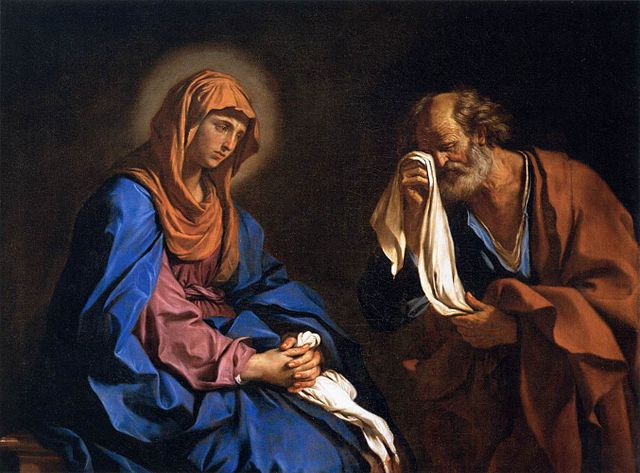I was meeting with one of the Confirmation students and talking about the Sacrament. She asks me, “So, what now?”
“What do you mean?” I respond.
“Well, until now I’ve been in CCD classes for First Communion prep and then Confirmation prep classes. What now? What happens after I receive the Sacrament?”
And I thought about this secret desire we all have to do something great with our lives. This wanting to set out a plan, go out on an adventure, and work on something great. We can also ask ourselves that same question that the Confirmation student made… So, Jesus came. He is the fulfillment of the prophesies. He is God-made-man. He has redeemed us by His death and resurrection. He came back to life. What now?
What now? What do I do?
Now as we celebrate Easter season, we can ask ourselves that question: With Christ resurrected, what now? When people ask me, How do I start reading the Bible? What book do you suggest? I like to say Luke, and then Acts of the Apostles. There is a consensus among scholars that Luke wrote both works. So, the first volume would be the Gospel, the story of Jesus; and his second volume, the Acts of the Apostles. The first volume tells the story of Jesus and the second volume addresses the questions of: what now? What do we do after Christ showed Himself to us after He came back to life? What comes next? If you go through the Acts of the Apostles, you’ll find that what they go through as a community of Christian believers resonates with what we go through. They also lived in a hostile world that rejected the message of Christ. They lived in a world that just accepted pleasure and power, and so it can speak to us, too.
What do we do, what do I do, to live the Gospel of Christ, the message of Jesus?
Kerygma, Kairos, Christos
That is where we find the first reading of today. Peter stands up and delivers one of the first homilies. The Kerygma, theologians call it—the preaching of the message of Christ.
Let’s look at the context: the Apostles were just locked up out of fear of the Jews. Jesus has just given them the Spirit, and they break out the doors and begin preaching, speaking in tongues. People are marveled! How can they be speaking all these languages? Aren’t they Galileans? But many of them were also ridiculing them. They’re not speaking in tongues…they’re just babbling… they’re just a little tipsy. They’ve had too much wine! (Acts 2:13).
That’s when “Peter stands up with the Eleven, raises his voice and says, ‘Let all the house of Israel know for certain that God has made Him both Lord and Christ—this Jesus whom you crucified'” (Acts 2:36). These two titles “Lord” and “Christ” –we may be used to hearing them, but back then, they were a big thing! In the times of the Roman Empire, there was one lord, one kairos, and that was the Roman Emperor himself. He was the one supreme ruler, the lord of civilization and progress.
So, for Peter to say Jesus is Kairos, Jesus is Lord, that He is the Supreme Ruler, was an inherently subversive act against the Roman Empire. It must have shocked them! Who is this man to say that a Jewish rabbi is Lord?
The second one, Christos. That title was directed especially to the Jewish people, the Jewish teachers. Christos means “the Anointed One,” the Messiah. Jesus is not only Lord of all and supreme power; He is also the Anointed One, the Messiah, the one we’ve been hoping for.
Those two titles represent a major way of preaching for Peter, but let’s focus on how he starts – “He raised his voice.” Amidst all the people, Peter preached bluntly, openly. Certainly, it would hurt politically correct ears to hear somebody preaching so openly in our times.
We hear about this conviction of Peter’s. There’s no nuance, is there? “God has made Him both Lord and Christ—this Jesus whom you crucified.” Many times, we are worried about pleasing everyone with what we say, how we say it, and who could take offense of it; and the one we are least concerned about pleasing is Christ Himself, God. If He is our Lord, He is the one we truly need to seek and please in our lives. Granted, we should be charitable with everyone, but not out of fear should we water down the message of Christ. Only He is Lord.
The Word of God Can Hurt
Peter’s energy marvels me. From where does he draw this conviction? Don’t forget that this is the same man who denied his teacher, Christ Jesus, three times, who abandoned Him when He needed him the most (Mt 26:69-75). From where does he draw this conviction? I think, precisely from experiencing reconciliation with his Lord. And it is drawing from this experience that Peter challenges his listeners to the first step of following Christ: to repent. It is this experience of repentance that makes his preaching of the Word so effective that the people who were previously ridiculing him are now “cut to the heart.”
St. Peter Weeping before the Virgin, Guercino, Louvre, Paris.
The preaching of Peter “cuts them to the heart;” it is the Word of God making its listeners. The Word of God comforts the afflicted, but how true it is that the Word of God also afflicts the comfortable! For those who are overly comfortable in their lives, the Word of God “cuts to the heart,” challenging them first of all to repent and then to “be baptized,” to set out into this marvelous adventure of following a new life in Christ, the Resurrected One.
The Supreme Adventure
Chesterton, reflecting on this sense of adventure, this sense of newness life, of “What now?” said the following words,
“An adventure is by its nature a thing that comes to us. It is a thing that chooses us, not a thing that we choose. Falling in love has often been regarded as the supreme adventure, the supreme romantic accident. Love does take us and transfigure and torture us. It does break our hearts with an unbearable beauty, like the unbearable beauty of music. But only insofar as we are in some sense prepared to fall in love and in some sense jump into it. (…) In this degree, the supreme adventure is not falling in love. The supreme adventure is being born.”
Isn’t that what Baptism is about? To be “born again” (Jn 3:3), day by day, in newness of life and freshness of faith.
To be born into this adventure of following Christ in our lives.
To be born as a son and daughter of God and incarnate the gospel of Christ Jesus in my daily life.
To get to know Him who is Lord and Christ of my life, personally, intimately.
But that takes a radical decision. It’s not something that I can half-live in my life, half-convinced. Christ Jesus asks ALL of us. If He is the Lord of my life, I will seek Him personally; the Holy Mass will be the most important event of my week. Getting to know my Lord and Master in Scripture through daily prayer life, getting to live the message of Christ in my workplace, in my family life, in my personal life. All these will be priorities for me, getting to know Him who is my Lord and Teacher.
Friends, the adventure to which God is calling us in Christ Jesus is truly the source of our joy, but it’s something that takes reflection and decision. Like Peter, we will also be ridiculed by the message.
Convert the World…Rather by Example than by Word (St. Francis of Assisi)
It almost seems like any message today is acceptable and tolerated. Any political view, any stance on any matter: social, sexual, moral. Everything is acceptable, but when it comes to preaching Christ, the world responds with aggression, with mockery; the “tolerant” respond with intolerance.
And that’s OK. Because it’s about preaching first of all by our actions, even before our words. We strive to become living Gospels, in continuous conversion.
Faith is not a self-improvement program. The Church is not a house for a special, selected holy ones. The Church is a factory of saints, from sinners to sainthood. Far from being a self-improvement program, the Christian faith is about a person, Christ Jesus, and about getting to know Him intimately, with decision, to follow Him.
So if we ask ourselves “What now?” after encountering the Lord, we can respond, filled with the Spirit, like Peter, that, “The adventure has just begun.” We will accept the message of Christ, we will accept this invitation of a new horizon to follow Him if we place Him as our Lord and Christ of our lives, involve Him in our decisions.
In this month of Mary, let us ask her to show us how to follow Christ with this conviction: the conviction of having Him as our Lord and Teacher in every dimension of our lives, the conviction with which we raise our voice, from which our actions preach our reconciliation with the Father.
May Mary show us how to hear the voice of the Good Shepherd calling out to us.
This post is also available in: Spanish




